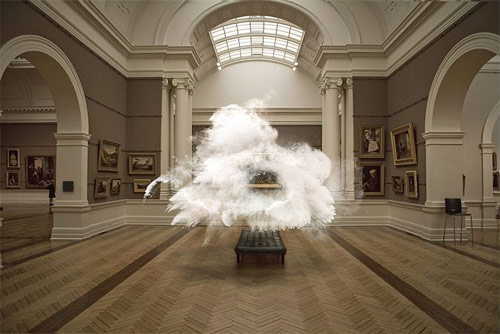In reading the reviews of Flynn I was struck by the contrasting arguments about his poetry. The overarching argument, which relates to the question I failed to address in my previous post, is where does the power and emotion in Flynn's poems come from. Calvin Bedient argues that Flynn's poetry lacks power because it is all in the past and poetry in the present. I believe that Bedient is missing the power of the poems by reading the poems as a narrative of Flynn's traumatic past. While Flynn is, in a way, telling the story of his past relations with his mother and father, the power comes from the unveiling of emotion and trauma. As Tony Hoagland states, "The book's gift is not the sensationalism of the tale, but the delicate kiltered skill with which the poems collage anecdote and metaphor into allegory."
The sense of an "allegory" brings Flynn's accounts from the past to the present accentuating their metaphorical and symbolic power rather than the simply literal meaning of the poems. Flynn's story may be far in the past, however his emotions and the symbolic nature of his poems can be felt in the present.
Bedient refers to Flynn's poem, "Man dancing with a paper cup." Specifically the line stating, "a church bell ringing resonates long after the ear ceases to perceive it." Bedient states that the ringing church bell is inconsequential to the present and therefore lacks power. However, I believe that the power in the church bell can be tangible to the reader and therefore felt in the present. This symbolism and emotion brings Flynn's story to the present, where it possesses power and relevance to the lives of its readers.
In thinking about confessional poetry, the song King of Carrot Flowers pt. 1, by Neutral Milk Hotel came to mind. A boy describes the story of growing up with a girl and the traumatic experiences that they dealt with. Does this song/poem have power or is it just a story about the past? Does the music and/or the video give it more power than it might have simply as a poem? I'm still not sure... http://www.youtube.com/watch?v=tDdyKklEHyY&feature=related

I believe that Flynn's poetry lends itself to a far more contextual approach. Nick talks about the use of allegories and metaphors and symbolism, and he is right. Flynn's poetry uses all of these things; however, that is not where I believe the power of his poetry lies.
ReplyDeleteIn his poem "How do yo know you're missing anything," Flynn evokes imagery by adding details of setting and situation. By saying that the refrigerator is circa 1970, the reader gets an image of a kitchen reminiscent of the era. The detail that the author was driving underage gives the image of a freshman in high school busting out to see a girl late at night. The fact of the matter is that this is the imagery we have seen and the flashbacks of the life we have led. In light of that, the power is amplified due to the direct relation.